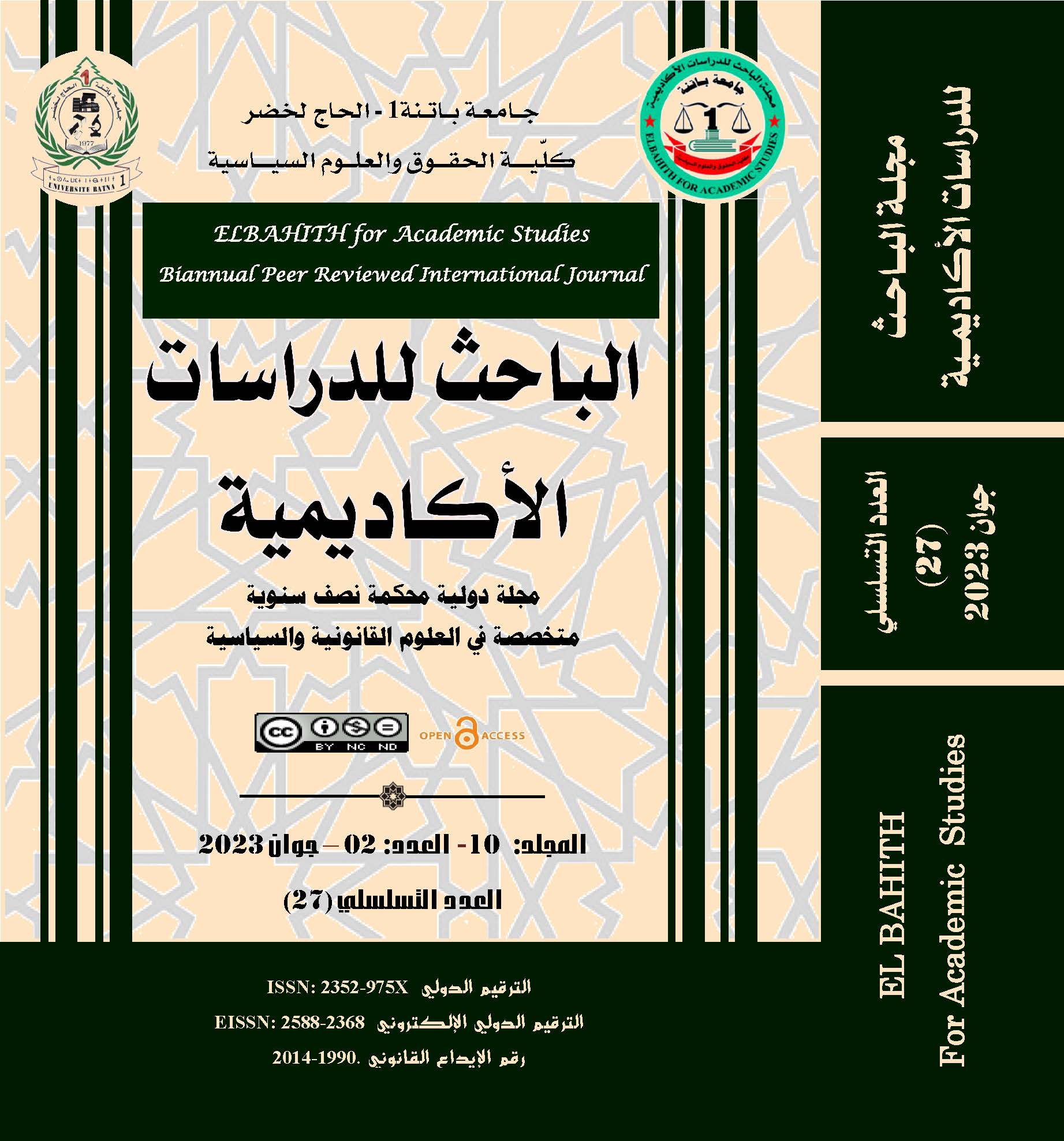Parliamentary interrogation in the Algerian constitutional system
DOI:
https://doi.org/10.59791/efas.v10i2.1634Keywords:
Parliament oversight, Interrogation, Government responsibility, Motion of no confidenceAbstract
Constitutions usually state the parliament’s function of oversight over government activities in addition to its main function, which is legislation, there is no doubt that this function has big importance as the executive authority knows in advance that all its works will be vulnerable to parliament oversight. Thus, the government makes sure to do its work the best way possible, as it will defend it before the parliament. Constitutions and parliamentary rules of procedure in Algeria have authorized many means for deputes and members of the parliament in order to carry the task of oversight, one of which is the right to interrogate the government or one of its members to hold them accountable for anything related to their field of specialty. Since the interrogation holds in a certain meaning of accusation and accountability for the actions of the government, it may lead to the censuring of government or one of the ministers (through the no confidence motion). Which is what we are aiming to address through the following problematic: How does the Algerian parliament exercise oversight on government actions through the mechanism of interrogation guaranteed by the constitutional founder? We will answer this problematic by relying on the descriptive approach.
Downloads
Published
How to Cite
Issue
Section
License

This work is licensed under a Creative Commons Attribution-NonCommercial-NoDerivatives 4.0 International License.





